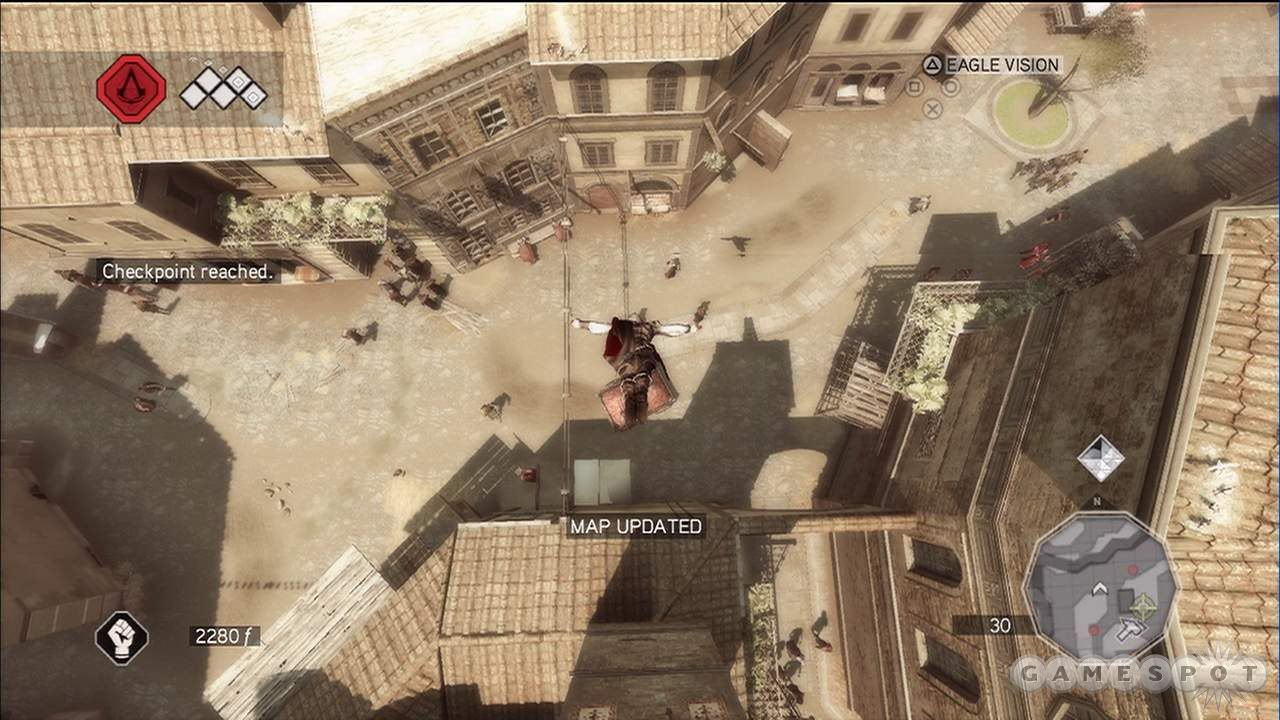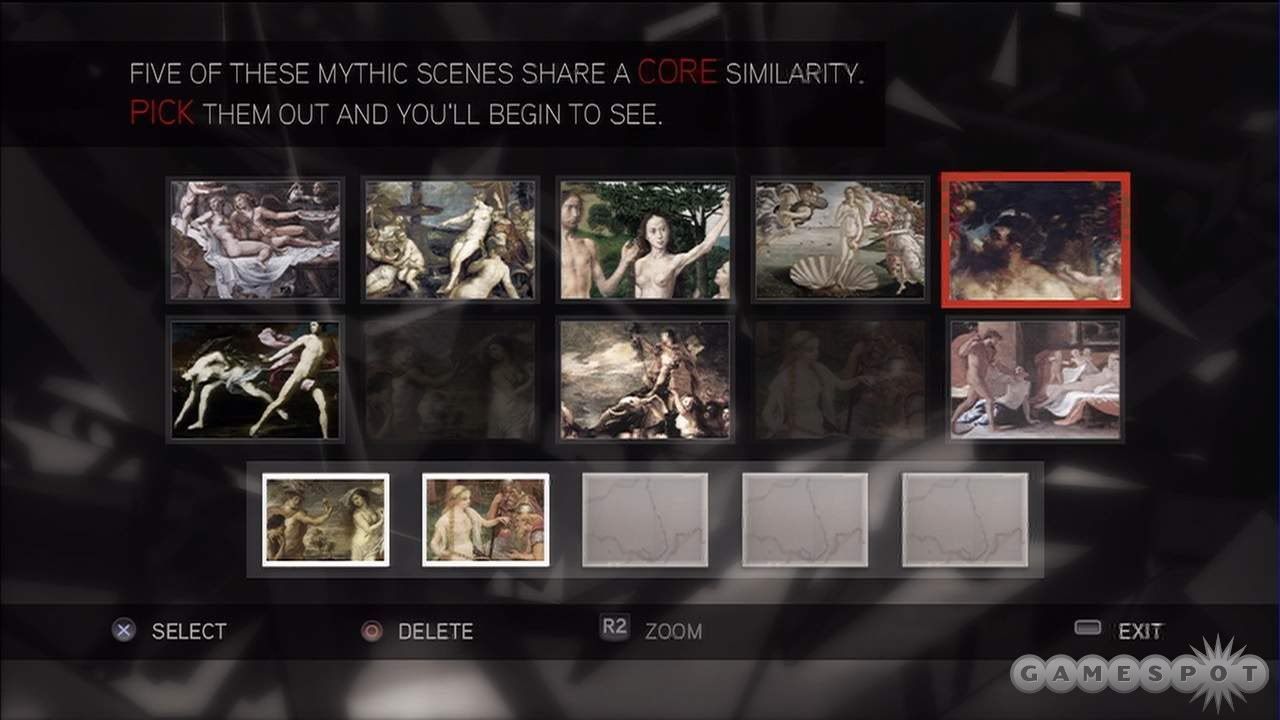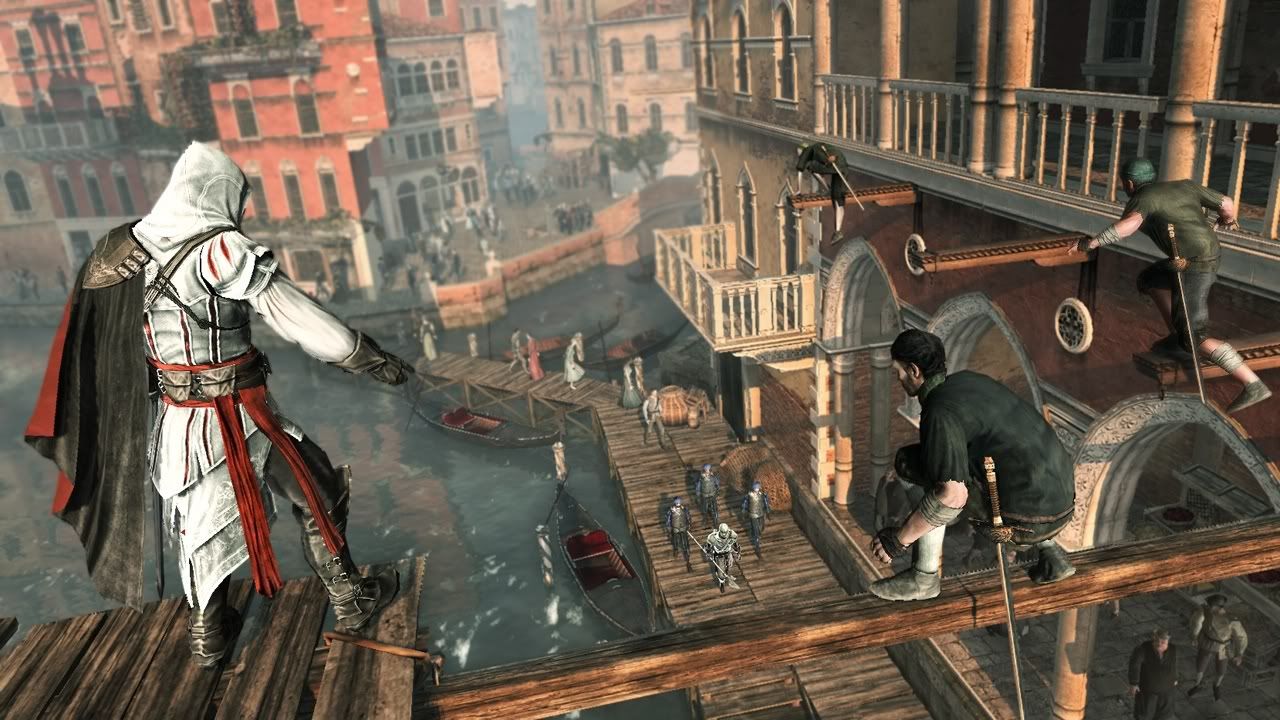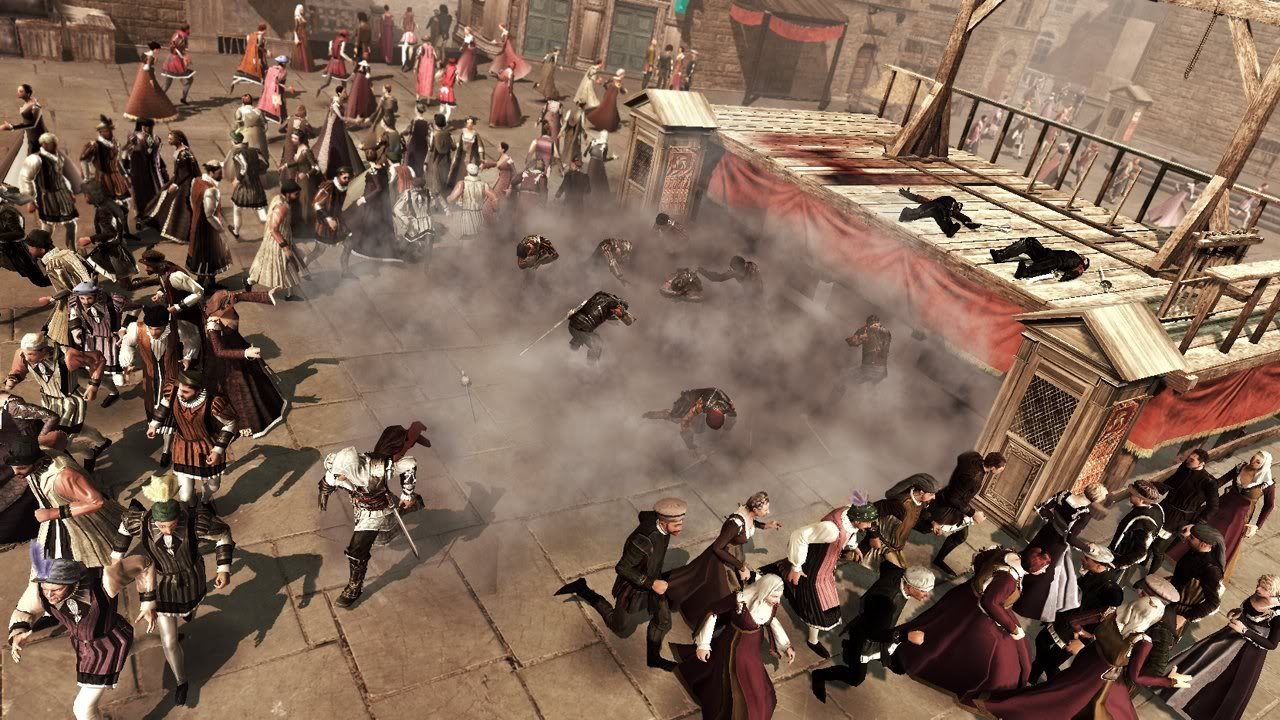Assassin's Creed II is an action-adventure video game developed by Ubisoft Montreal and published by Ubisoft. It is the sequel to the action-adventure game Assassin's Creed, and was released on PlayStation 3 and Xbox 360 in November 2009, with a PC version scheduled for release in 2010.
As in Assassin's Creed, the story revolves around the "Animus", a machine which makes it possible for the player to view the genetic memories of protagonist Desmond Miles' ancestors, a long line of assassins. In Assassin's Creed II, the machine is used to view the memories of a young nobleman-turned-assassin named Ezio Auditore da Firenze in the late 15th and early 16th century in Italy, during the Renaissance. The game thus incorporates numerous real-life historic events, places, and people throughout Italian Renaissance history, all of which play a key part in the plot and in Ezio's journey to uncover a hidden conspiracy after the murder of his family.
Assassin's Creed II received largely positive reviews, with critics praising the game's stronger emphasis on open world exploration and interaction, nonlinear gameplay and greater mission variety compared with the first Assassin's Creed. The game was also credited with improved non-player character AI, a new in-game economy for buying items, weapons, and armor, and a deeper, more finely-tuned combat system.

As in Assassin's Creed, the story revolves around the "Animus", a machine which makes it possible for the player to view the genetic memories of protagonist Desmond Miles' ancestors, a long line of assassins. In Assassin's Creed II, the machine is used to view the memories of a young nobleman-turned-assassin named Ezio Auditore da Firenze in the late 15th and early 16th century in Italy, during the Renaissance. The game thus incorporates numerous real-life historic events, places, and people throughout Italian Renaissance history, all of which play a key part in the plot and in Ezio's journey to uncover a hidden conspiracy after the murder of his family.
Assassin's Creed II received largely positive reviews, with critics praising the game's stronger emphasis on open world exploration and interaction, nonlinear gameplay and greater mission variety compared with the first Assassin's Creed. The game was also credited with improved non-player character AI, a new in-game economy for buying items, weapons, and armor, and a deeper, more finely-tuned combat system.

Screenshots:
- Spoiler:






